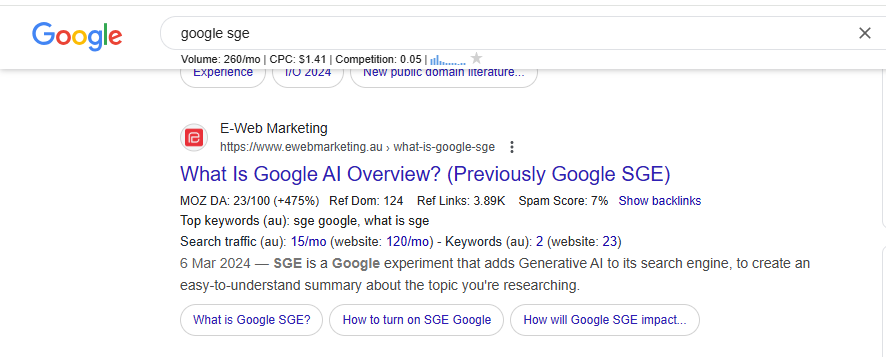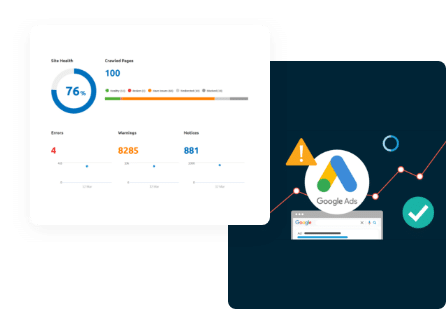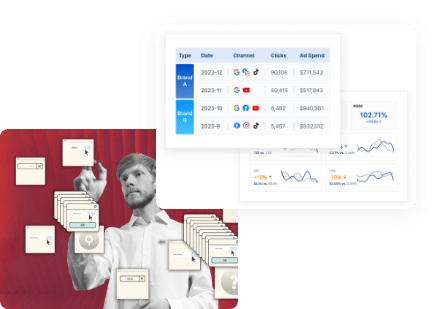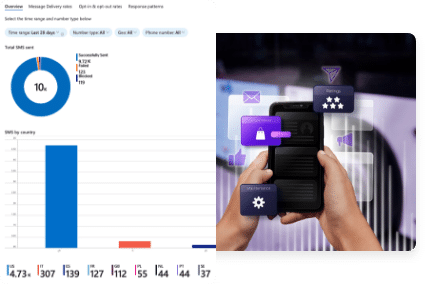Do you want search engines like Google to give your website the kind of visibility that brings a flood of loyal consumers to your door?
Please don’t stuff your page with keywords and call it a day!
Search engines rank websites that share the BEST information for user queries related to their industry.
Your mission is to deliver valuable content that:
- Follows SEO best practices
- Meets the needs of your audience and holds their attention
What is high-quality content for SEO?
High-quality content refers to text, images, graphics and videos that are useful, accurate, unique and engaging for your target audience.
However, these notable characteristics aren’t enough to get your website noticed in organic search listings.
Your best shot at connecting with your online audience is to structure quality content in a way that honours the search algorithms that rank every listed website. Tick all the technical boxes while also appealing to humans. Both strategies go hand in hand to boost website traffic, lower bounce rates and increase people’s browsing time!
⭐ The (not-so) secret? ⭐
Craft an enticing preview that motivates people to click on your page from search engines. Then? Provide a positive experience when they visit your website. Do this while incorporating relevant popular keywords discreetly to become instantly visible for related searches.
Looking for detailed advice? Our “SEO writing for beginners” guide outlines 12 free and practical actions you can take to climb Google’s ranks. We put our best tips here.
No time for that? Keep reading this article for a quick summary!
The key elements of quality content
Relevance and value
Your content should always be relevant to the topic and valuable to your audience. Offer solutions to their problems, answer questions and provide action insights.
For example, a blog article like “10 Budgeting Tips for Beginners” is more useful to readers on a personal finance site than a vague article about general finance. Strive to understand what your audience seeks and tailor your material to meet those specific needs.
- Find popular queries related to your industry with keyword research.
- Reddit and internet forums help you understand consumers’ pain points, which you should address in your content.
- Ensure your content is informative and actionable, offering readers something they can implement or benefit from.
Originality
Search engines prioritise websites with unique content. High-quality content should reflect your perspective or expertise on a subject. This sets you apart from competitors and boosts your industry credibility. Just as importantly, your target audience is more likely to share your content, which improves SEO!

Well-researched and accurate information
False or superficial information could harm your credibility and drive visitors away. Google rewards comprehensive content because it tends to be more trustworthy and valuable.
- Back up any claims you make and link to credible sources.
- Provide statistics, case studies or examples where appropriate.
- Regularly update your content to reflect your field’s latest trends or information.
Readability and structure
Even the most helpful content will fail if it’s difficult to read or poorly structured. Your page should be easy to follow, logically organised and engaging for the reader.
Poor writing detracts from your message and lowers the overall quality of your material.
- Use jargon-free language.
- Break up your text with sub-headings, bullet points and shorter paragraphs.
- Concise sentences improve flow and readability.
- Check for grammar and spelling mistakes with tools like Hemingway App or Grammarly.
Keyword optimisation
Content should naturally incorporate keywords relevant to user searches, without compromising readability or value.
Keyword stuffing (cramming as many keywords as possible into your content) is an outdated and penalised practice. Instead, focus on strategically placing your primary keywords in key areas such as headings, meta descriptions and the first few paragraphs of your content.
- Identify the most relevant keywords using tools like Google Keyword Planner and SEMrush.
- Focus on primary and secondary keywords and place them naturally within your content.
- Include keywords in key areas, such as titles, meta tags, headers, and image alt text.
- Avoid overusing keywords to prevent a negative impact on the user experience.

Multimedia and visuals
High-quality content is not just about text. Elements like images, infographics and videos drastically boost user engagement. They also make the content less intimidating by breaking up large blocks of text.
Interactive content is likely to rank higher because it keeps readers engaged for a longer period. Search engines take note of this engagement metric.
- Add relevant images or infographics to illustrate your points.
- Use videos to explain complex topics or add value to the user experience.
- Optimise all multimedia for web performance (e.g. compressed image sizes for faster page loading times).
Engagement and shareability
Google loves content that encourages users to engage through comments, shares or backlinks. This kind of activity highlights valuable content for search engines.
Content that sparks conversation, invites opinions, or provides interactive elements (like quizzes or calculators) has a higher chance of being shared across social media platforms, improving your SEO.
- Include calls-to-action (CTAs) encouraging readers to comment or share your content.
- Make your content easy to share with social media buttons.
- Offer valuable, unique insights that prompt readers to pass them on to others.
Do you need help publishing content that your dream audience notices and loves?
Our Sydney-based team of SEO experts researches and creates unique and engaging blogs and offering pages that increase traffic and sales. Call 1300 792 811 or fill out this form to find out more.














 Search Engine Optimization
Search Engine Optimization Google Ads
Google Ads Meta Ads
Meta Ads SMS Automation
SMS Automation Website Design
Website Design Virtual Marketing Manager
Virtual Marketing Manager








